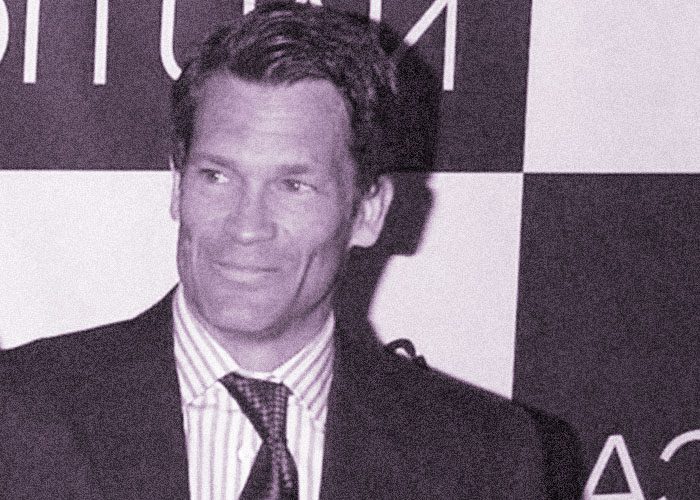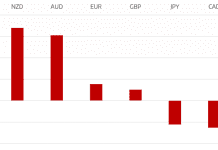The history of the hedge fund industry is a cyclical one, and after the runaway successes of the 1990s and 2000s, it was perhaps inevitable that things would start to get a bit more difficult for those involved, and so it proved with the financial crisis and the slew of new regulation that came in its wake. These changes have brought many of the biggest names in hedge funds down to earth, and one of those has been Louis Bacon – one of the most successful hedge fund managers in history, whose fortunes have taken more than their fair share of knocks in the past few years.
Louis Bacon was born in Raleigh, North Carolina, the son of real estate impresario Zachary Baon Jr. After graduating from high school in Alexandria, Virginia, he went on to study American literature at Middlebury College in Vermont before earning an MBA in finance from Columbia Business School in 1981.
It was while he was at Columbia that he got his first taste of the markets, trading commodities using his student loan. Initially, he was somewhat unsuccessful, and lost so much money over his first three semesters that he had to borrow money from his father to pay for necessities. However, this didn’t deter him, and in his fourth semester he finally turned a profit.
After Columbia, he joined the sales and trading program at Bankers Trust, before moving to Walter N. Frank & Co. to trade currencies. He then landed a job as a “runner” on the floor of the New York Cotton Exchange, and later worked as a futures trader and broker at Shearson Lehman Brothers, eventually rising to the position of senior vice president of their futures trading division.
In 1987, he struck out on his own by founding Remington Trading Partners, where his experience of trading during and after the market crash of that year was to prove highly instructive for his future trading philosophies and insights. Two years later, he formed his first hedge fund, Moore Capital Management, and in 1990 he created Moore Global Investments with a $25,000 inheritancefrom his mother.
Easy Money
At this point, the concept of “macro” investing – making global bets on a wide variety of financial instruments based on wider economic shifts – was a fairly new one, and a trader employing this strategy could still make huge profits from big market disruptions. For example, in Moore’s first full year of trading, a bet that Saddam Hussein would invade Kuwait made a return of 86%. By way of illustration, Bacon’s accurate prediction of the events surrounding the second Iraq war netted a profit of just 35%.
Bacon’s knack for making these types of predictions gave him an enviable reputation as a trader, and his flagship fund has returned an average of 18.8% since 1989. Along with Paul Tudor Jones of Tudor Investment Corp. and Stanley Druckenmiller of Duquesne Capital Management, Bacon was considered one of the leading lights of the macro investing world.
In recent years, however, Bacon’s approach to investing has become less fashionable – largely because the recent market turmoil has made it much harder to predict trends. For example, close correlations between stocks and indices have made opportunities for big and successful trades far more limited, and the policy decisions of central banks eager to give economies in the US and Europe some breathing space have also fuelled this unpredictability.
To make things even more difficult for macro investors, new SEC regulations requiring an unprecedented level of disclosure by traders have made it almost impossible to make the kind of cards-close-to-chest big trades that made the names (and fortunes) of traders such as Stanley Druckenmiller, George Soros, and Bacon himself. As a result, all three have ceased to take money from outside investors, and have transitioned into family offices, which only invest their personal fortunes and those of their family members. This move was more difficult for Bacon than it was for some of his contemporaries, as with a net worth of $1.4 billion, and some of the highest fees in the business, he relies on outsiders for the majority of his capital.
The secret of his success
According to people that have worked with Bacon, the secret of his remarkable success lies in his workaholic nature and his extraordinary emphasis on having the right resources at his disposal. For example, in the pre-internet days, he used to have copies of Barron’s flown to his London office from the U.S. by courier. In recent years, it has been said that he has computer screens set up on the bedside tables at his various properties so that he can scan market data as soon as he wakes up.
This highly-disciplined approach also extends to his personal life, with his children’s allowances being negotiated with one of his assistants, based on their financial records and an assessment of their outgoings, and then agreed in sit-down meetings with their father. He also has his assistants prepare ultra-healthy meals and green shakes containing apples, spinach, and cucumbers in an effort to keep him lean and focused.
Out of the many portfolio managers he has employed over the years, only around a dozen of them have ever been given $1 billion or more to manage, with Bacon himself handling the bulk of the assets. With most of his traders making the vast bulk of their money from bonuses, it is said that they live in fear of having their capital and therefore their bonuses scaled back if they have a few bad trades.
But while he is famously intolerant of loss-making traders, he shies away from confrontations – unlike some of his more fiery contemporaries such as Steve Cohen of SAC Capital. Instead of bawling out his subordinates, he will find more subtle ways to undermine their efforts, such as placing opposing trades to cancel out what he perceives as potential damage, a tactic known as “fading” a colleague. These countermoves would then turn up in internal documents, which made it obvious who he had been undermining that week.
The end of the party?
Despite his ruthless reputation, Bacon has also faced some criticism for not being tough enough on some of his employees. One specific example of this was the case of a trader who was allegedly manipulating the prices of platinum and palladium futures, with the CFTC accusing Moore of failing to supervise him properly. In recent years, Bacon has faced more than his fair share of bad publicity, with the unfortunate discovery of a dead man in the hot tub at his Bahamas estate (he had a heart attack), a Moore trader implicated in a UK insider trading scandal, and the departures of many of Moore’s most profitable traders to start their own hedge funds.
Even worse for Bacon, his funds have struggled to produce market-beating returns since the financial crisis hit, with his flagship fund Moore Global Investments losing 4.6% in 2008 and $5 billion in investment, and losing 2.2% in 2011.
So although it seems as if Bacon’s remarkable winning streak may have come to an end, with a net worth of over $1.5 billion – and a recent substantial investment in a ski resort – it’s unlikely he will be losing too much sleep over it. Having made huge sums of money for himself and others during the boom years of the 1990s and 2000s, the impetus to generate and implement a whole new strategy to suit a new and much more difficult market landscape may not be as strong as it was at the outset of his career. After all, what’s the point in making money if you don’t have time to enjoy it?
I am a writer based in London, specialising in finance, trading, investment, and forex. Aside from the articles and content I write for IntelligentHQ, I also write for euroinvestor.com, and I have also written educational trading and investment guides for various websites including tradingquarter.com. Before specialising in finance, I worked as a writer for various digital marketing firms, specialising in online SEO-friendly content. I grew up in Aberdeen, Scotland, and I have an MA in English Literature from the University of Glasgow and I am a lead musician in a band. You can find me on twitter @pmilne100.




































